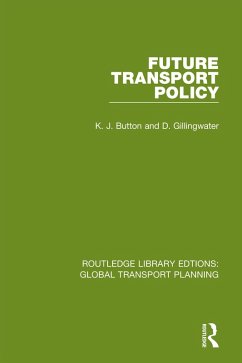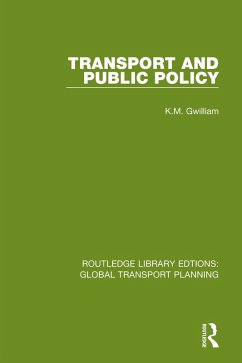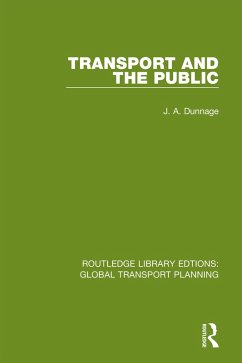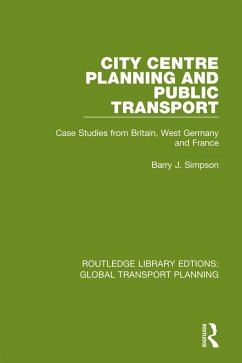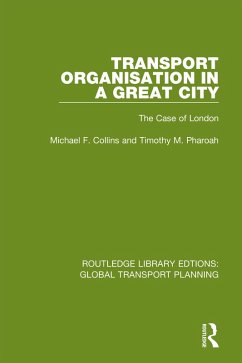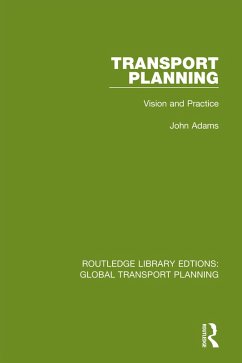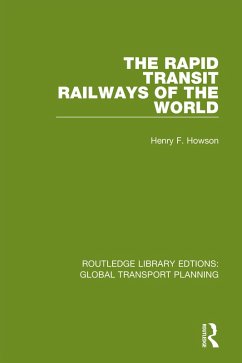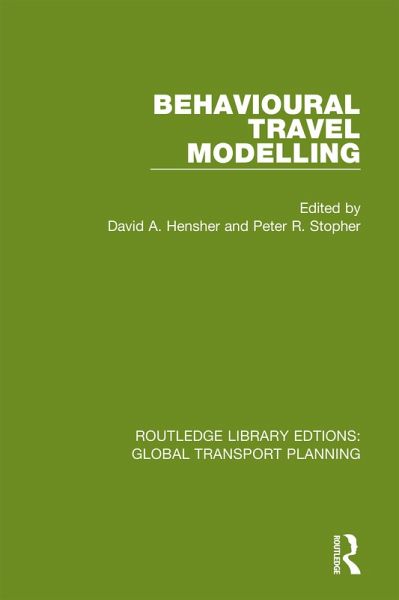
Behavioural Travel Modelling (eBook, ePUB)
Versandkostenfrei!
Sofort per Download lieferbar
45,95 €
inkl. MwSt.
Weitere Ausgaben:

PAYBACK Punkte
23 °P sammeln!
Originally published in 1979, this study deals on a fully comprehensive level with both passenger and freight travel. The 40 chapters deal with an extensive range of related topics, including equilibrium modelling, theoretical and conceptual developments in demand modelling, goods movement and forecasting and policy. It outlines approaches to understanding travel behaviour, which move beyond the individual choice theory towards a broader consideration of activities.
Dieser Download kann aus rechtlichen Gründen nur mit Rechnungsadresse in A, B, BG, CY, CZ, D, DK, EW, E, FIN, F, GR, HR, H, IRL, I, LT, L, LR, M, NL, PL, P, R, S, SLO, SK ausgeliefert werden.





